Sustainable Startuppers: Regitze Gaarde Bang went from being a top-grade CBS student to a sustainable flower child
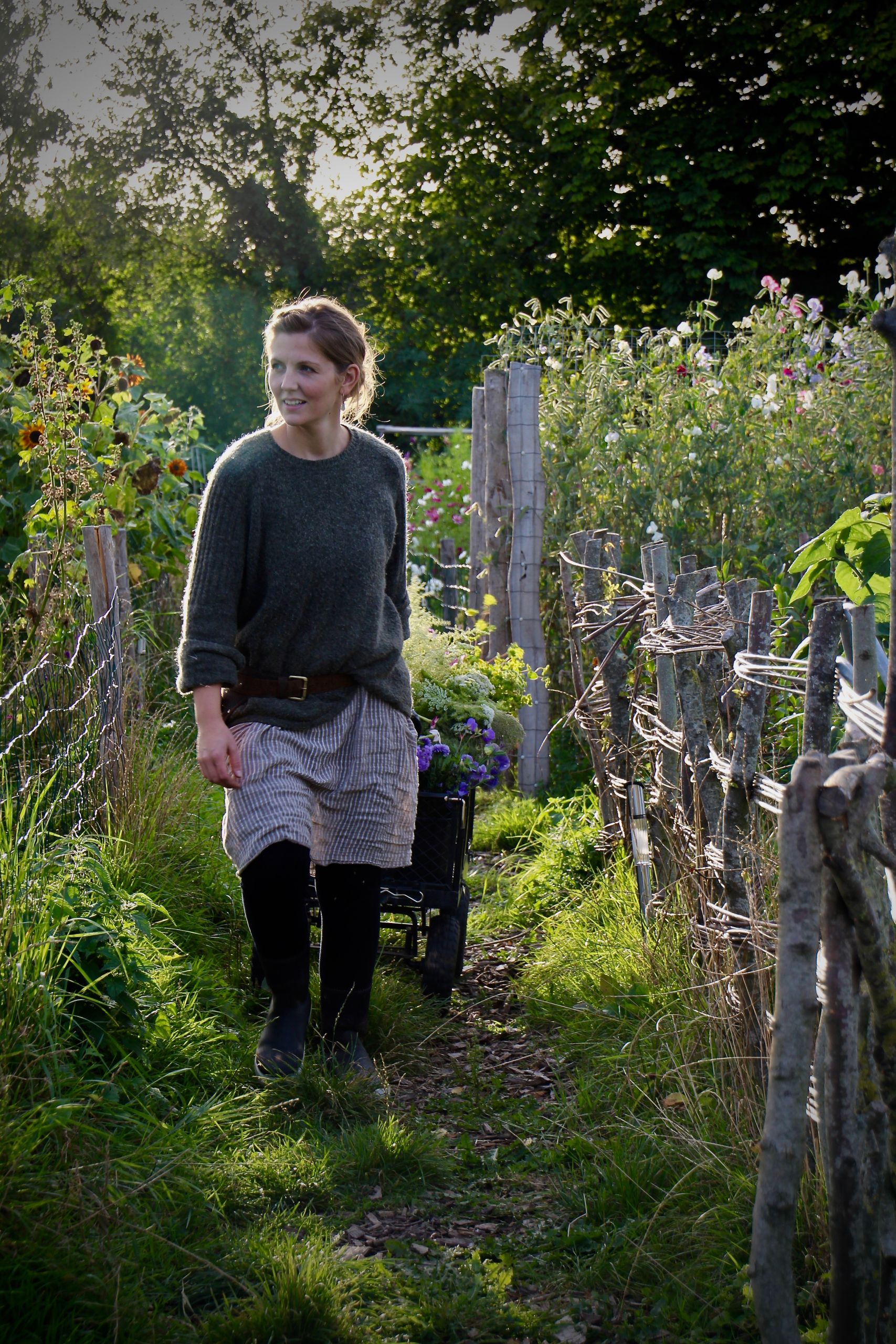
Regitze Gaarde Bang tells about her shift from being a CBS student with a well-orchestrated career plan to a simpler lifestyle in the countryside among thousands of flowers. Today, she lives in the small town of Gelsted, where her 3,500-square-meter garden makes up the foundation for Regitzes Have (Regitze’s Garden). (Private photo)
Ever since she was a little girl, Regitze Gaarde Bang has been fascinated by flowers. So much so, that she left CBS four months into her master’s degree to follow her dream and turn her hobby into her profession: a self-employed sustainable flower farmer.
“I got top marks for my bachelor assignment, and I was on a roll. But four months into my master’s, it began to dawn on me that I had planned my career to end up in an HR office. And I really couldn’t see my future self in that position. Therefore, I chose to drop out, tune into nature and follow my heart.”
That’s how Regitze Gaarde Bang remembers her shift from being a CBS student with a well-orchestrated career plan to a simpler lifestyle in the countryside among thousands of flowers.
Today, she lives in the small town of Gelsted, where her 3,500-square-meter garden makes up the foundation for Regitzes Have (Regitze’s Garden) – her startup, where she produces sustainable flowers as an alternative to the conventional and industrial flower production that usually takes place far away from Denmark and is expensive in terms of CO2.
Over the course of just three and a half years, she has turned an impulse buy of no less than 3,000 bulbs into a company in bloom.
She delivers flowers to two hotels, Sixtus in Middelfart and Gl. Avernæs in Agernæs, she sells bouquets at her local Kvickly supermarket and she arranges flowers for local weddings and visitors to the garden.
I guess that some people might think my work methods and philosophy are a bit extreme
But although Regitzes Have is growing into a successful business, it provides the flower farmer with a reward that money cannot buy.
“My drive is to contribute to making the world a purer and more natural place. I guess that some people might think my work methods and philosophy are a bit extreme. However, if you want to run a genuinely sustainable business, you need a mindset and drive like that. And if I had to make unsustainable choices, my stomach would start to ache,” she says.
And when you’ve reached the end of this article, dear reader, you can make up your own mind whether her philosophy is extreme or simply common sense.
Flowers are magical
The idea of life as a flower farmer didn’t pop out of the blue. For as long as Regitze Gaarde Bang can remember, beautiful plants have been part of her life.
“Ever since I was a toddler, I’ve been out in the fields picking flowers with my grandparents and making bouquets. Then, when I got older, my mother became manager of a flower shop and that gave me access to absorb and gain insider knowledge about the florist’s industry and the basic principles behind running a flower business,” she says.
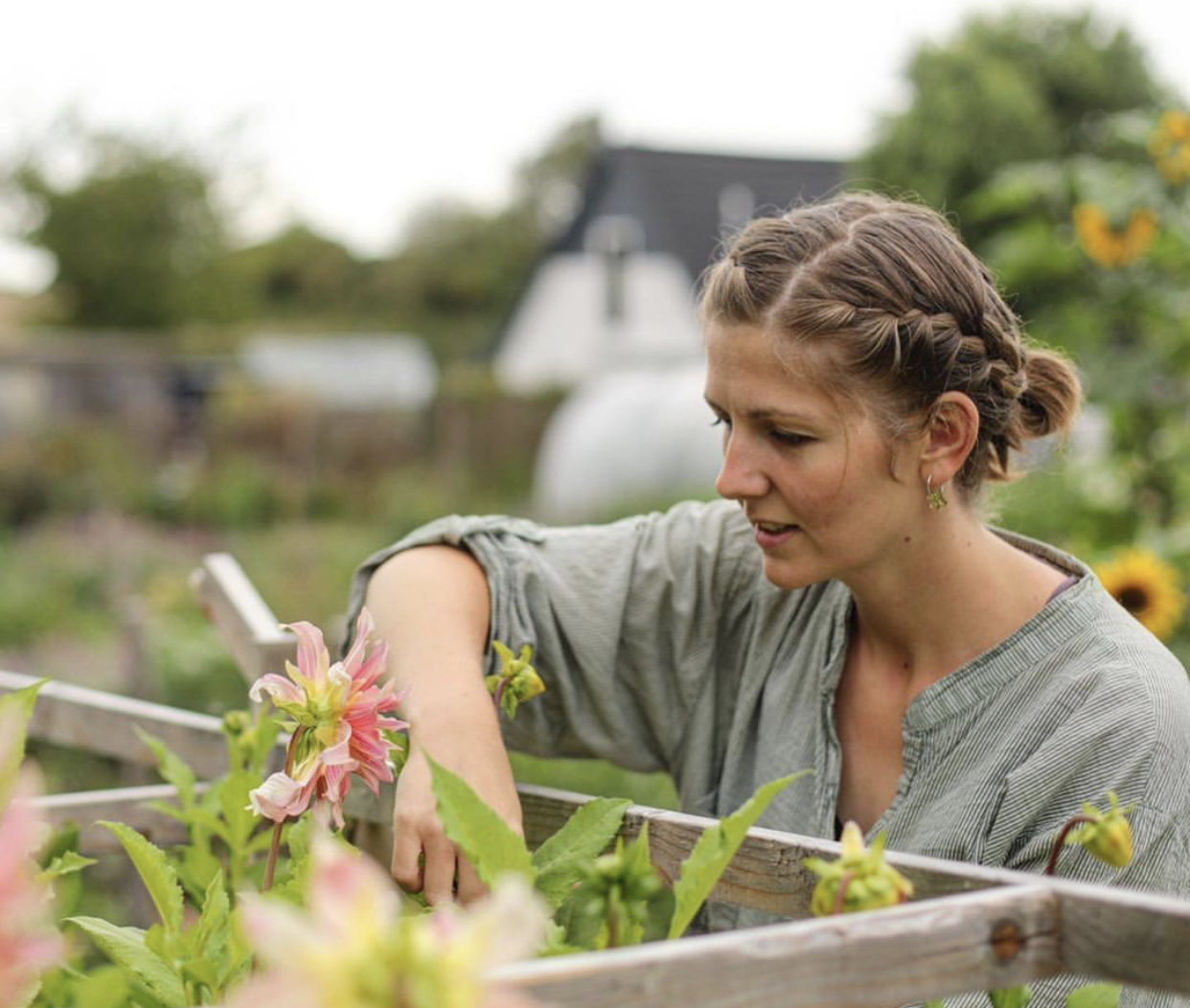
Now, Regitze Gaarde Bang is 28 years old and manages her own flower company. And if you ask the grown-up flowerchild, she’ll say flowers are not just flowers.
“Flowers are magical. It’s simply impossible to be in a bad mood when you walk around in a garden full of flowers. And in a way, flowers make people disconnect with the hectic world outside and become one with nature,” Regitze Gaarde Bang says, adding:
“Of course, forests and the seaside can generate some of the same experiences, but somehow, flowers are just the next level.”
And speaking of next levels, since the flower farmer and her husband moved into the property, the vegetation in the garden has significantly increased.
“When we arrived, only a rhododendron, an apple tree and two blackcurrant bushes were here. Now, I have somewhere between 10,000-20,000 plants in my garden during the course of a year. And it’s absolutely amazing,” she says.
But thousands of flowers, especially organic and sustainably produced flowers, do not just grow from the soul without hard work.
A slow affair
Working as a sustainable flower farmer is a long-winded process, according to Regitze Gaarde Bang. It all begins in the orangery, where she sows the flowers and helps them germinate.
Then, after a couple of months of care and watering, she replants the flowers in the garden and continues nursing them and weeding around them until spring. From then on, all the way until the frost comes, the flowers can be harvested and sold. And then, the whole process begins again.
“In many ways, producing sustainable flowers is a slow affair. It takes between four and six months from when I sow a seed to the point where the flowers are ready for harvesting. And the reason is, obviously, that I don’t use artificial methods during the process and therefore, the flowers follow their natural cycle,” Regitze Gaarde Bang says and continues:
“So, when people ask for red roses in November, I can’t give them anything except dried flowers and ask them to come back again six months later.”
Throughout the process, the flower farmer explains, she takes many steps to keep the production process as sustainable as possible.
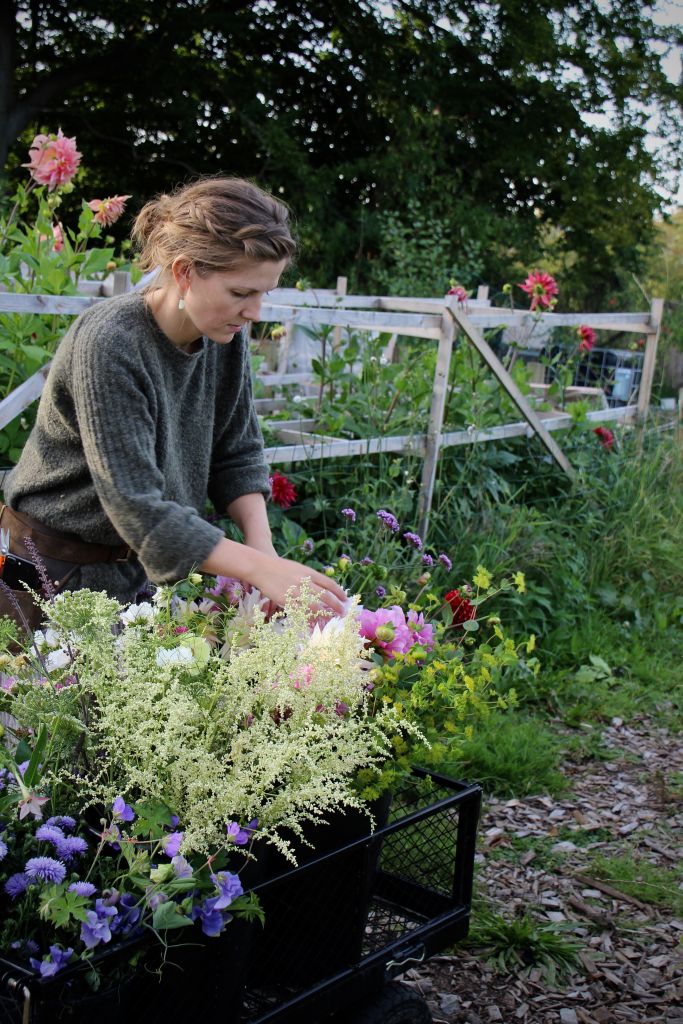
“The knowledge I learned at CBS has been very valuable to me. Especially when it came to establishing my own company. That’s an area where I’ve had a toolbox that other new startuppers don’t always have,” Regitze Gaarde Bang says. (Private photo)
“I have just finished converting my soil for organic farming. I haven’t got any heated greenhouses, but cold tunnels and my orangery in which the seeds germinate. I use rainwater for watering, and I don’t use any chemicals or pesticides – only organic decomposed chicken manure and compost tea,” Regitze Gaarde Bang says and goes on:
“And I’ve just bought an electric driven delivery van for delivering flowers. And that is quite an unorthodox means of transport in the flower industry, where conventional flowers are typically shipped by plane or trucks over large distances.”
But even though she has bought an electric van, she still holds on to her sustainable principle that she only delivers flowers in her local area.
“I’m very persistent about only selling and delivering flowers to the area around Gelsted. For me, an important point about having a sustainable business is that you do not remove your products far from the place where they were made. That’s essential,” she says and adds with a smile:
“And so, if you ask me if I can deliver flowers to your address in Copenhagen, the answer is no. However, if you know someone near Gelsted who might like a bouquet, I’d be more than happy to help.”
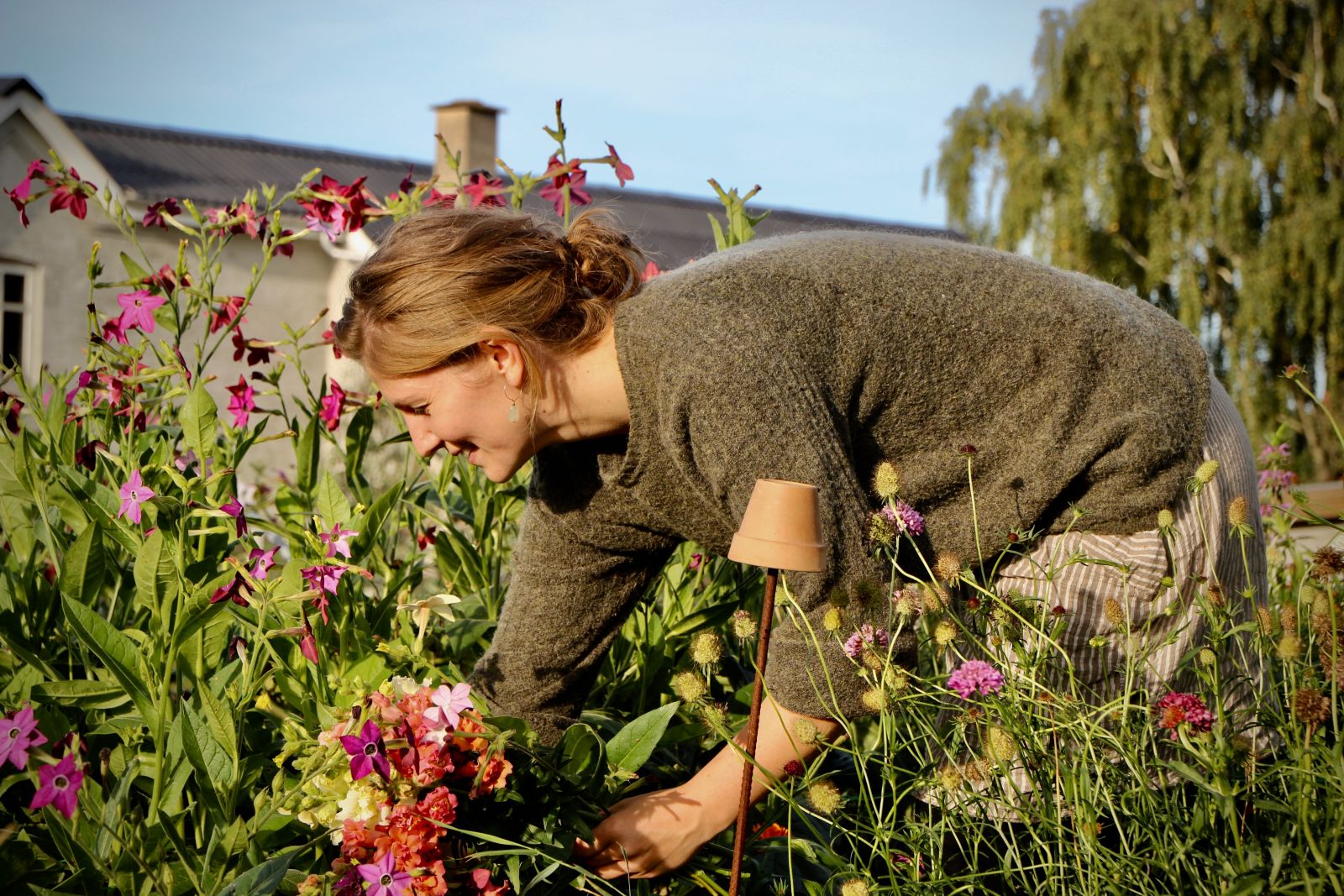
Everything’s connected
For Regitze Gaarde Bang, flowers are not just flowers. They are gears in a much larger machine that constitutes the spiritual and biologic system we call nature.
“My philosophy is that everything’s connected. Therefore, if you remove one part of the equation, everything collapses. So, if we take something from nature, we have to pay something back somehow,” she says and explains:
“Thus, my whole garden is surrounded by a fence of brushwood where insects thrive, the flowers provide plenty of pollen for the bees all summer long and when I harvest my flowers, I always leave 20 percent of the annual bloom for the birds, the bees and the beetles.”
However, despite her determination to keep all levels of her production and business completely sustainable, she has had to compromise on few things that are not part of the larger natural system.
Even though my buckets are made of reused plastic, it doesn’t change the fact that it’s plastic
“When I transport flowers, I carry them in black plastic buckets. Biodegradable buckets simply don’t work for me. And even though my buckets are made of reused plastic, it doesn’t change the fact that it’s plastic. Nevertheless, I can reuse the buckets for many years and seasons,” Regitze Gaarde Bang says and continues:
“For me, the most important aspect of all is always to bear in mind that you have to operate as sustainably as possible on all levels. And on very few levels, you just can’t do that. But I really do everything in my power to be as sustainable as I possibly can.”
“CBS was my hippie era”
Now, three and a half years after she bought thousands of flower bulbs and made a career out of her passion, Regitze Gaarde Bang reflects on the road that has led her this far. A road that, among other things, includes her time as a CBS student.
“I usually say that my time at CBS was my hippie era. I guess that the straight lines, the rushing and the rigid university culture made me rebel and become a genuine flowerchild,” she laughs and goes on:
“That said, the knowledge I learned at CBS has been very valuable to me. Especially when it came to establishing my own company. That’s an area where I’ve had a toolbox that other new startuppers don’t always have, and I’m very grateful for that.”
However, at the end of the day, the one thing that Regitze Gaarde Bang is most grateful for is nature.
“Being outside among flowers at one with nature is amazing, and I really think that all people should do themselves a favor and get out in it from time to time. You completely exit the rat race and forget all the stress and problems you might be dealing with in everyday life.”
“Therefore, I also think that our society as a whole could benefit from connecting with nature. That’s what I always recommend everyone should do.”
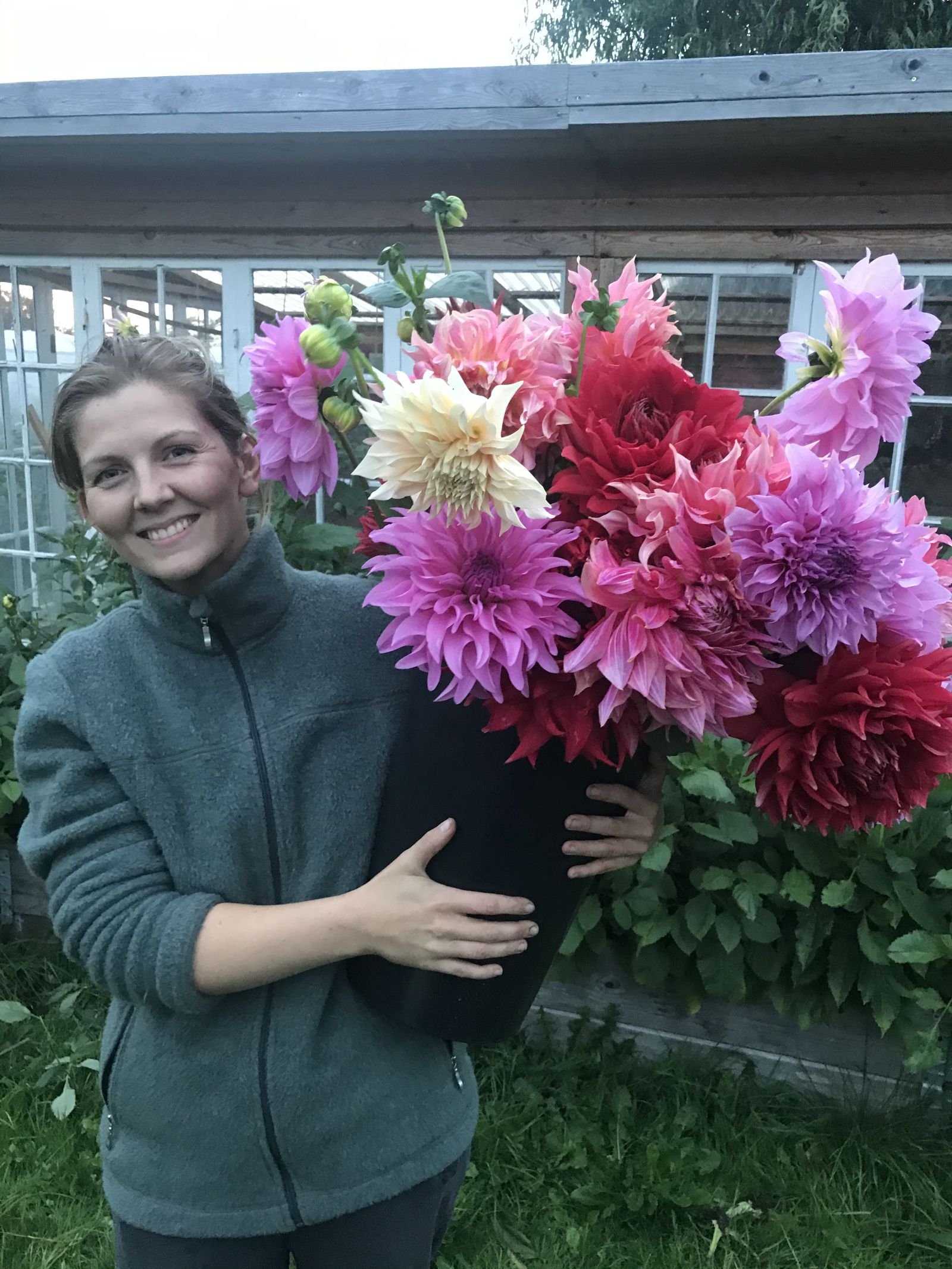



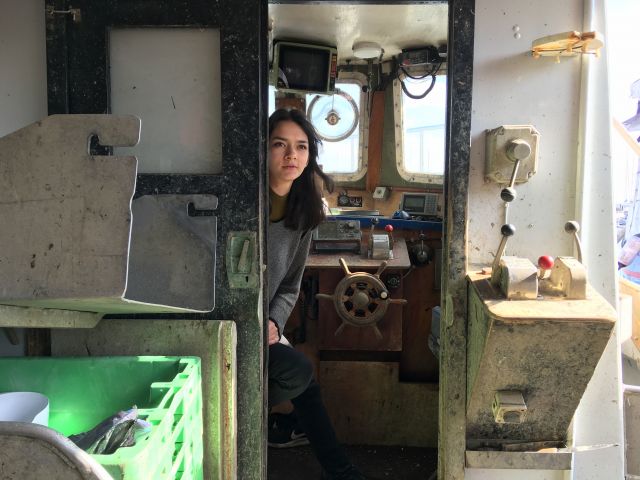
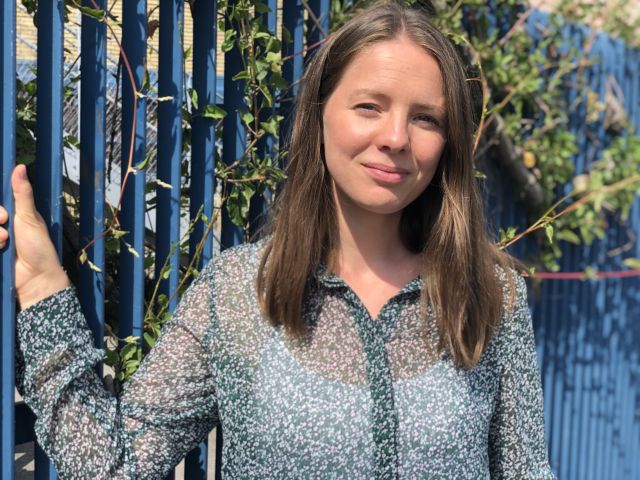
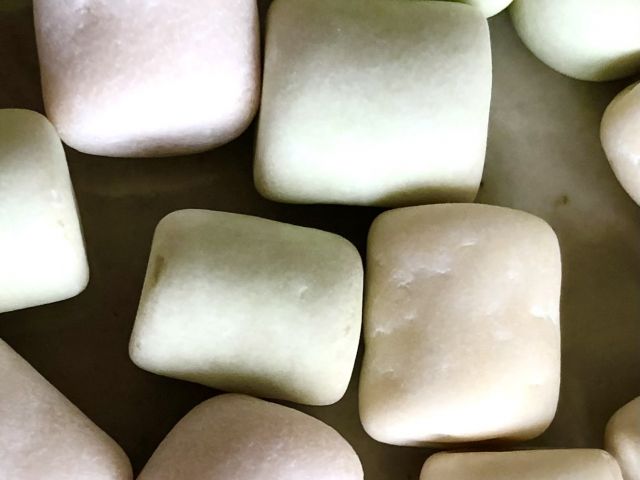
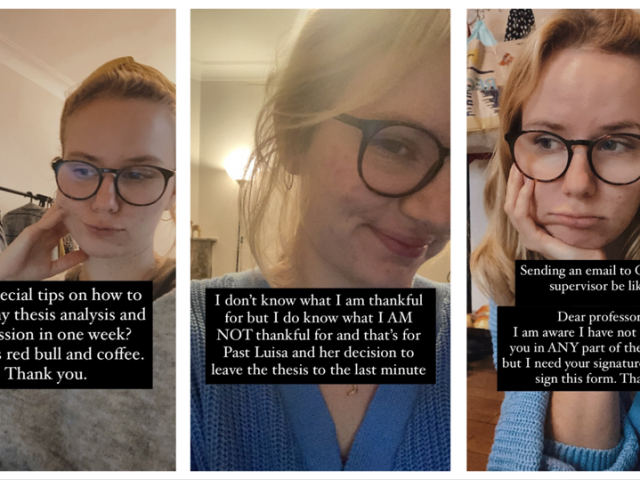
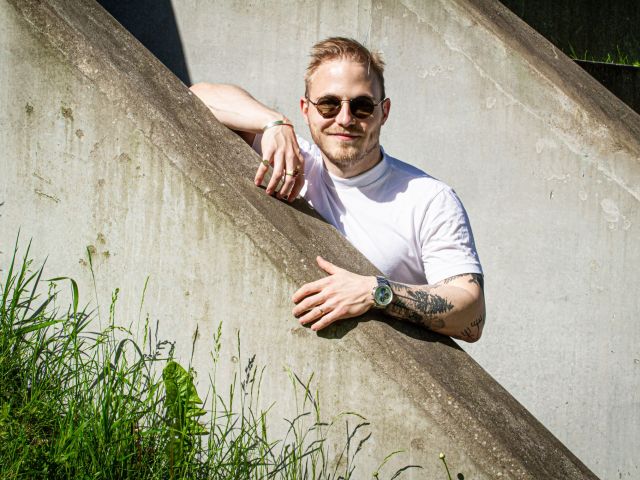





























































































































Comments